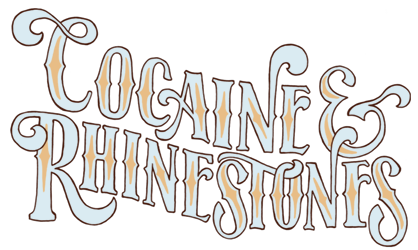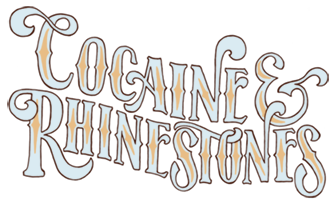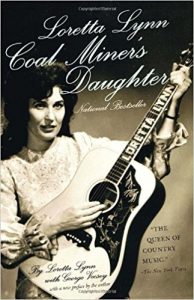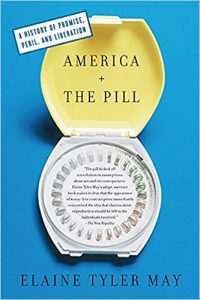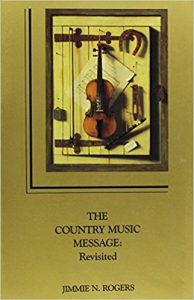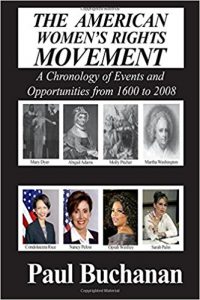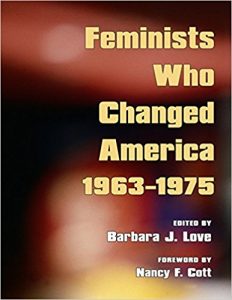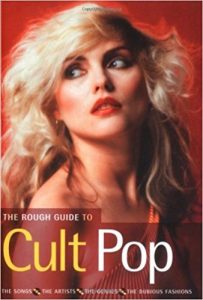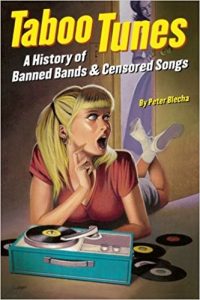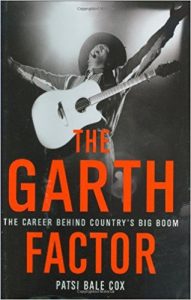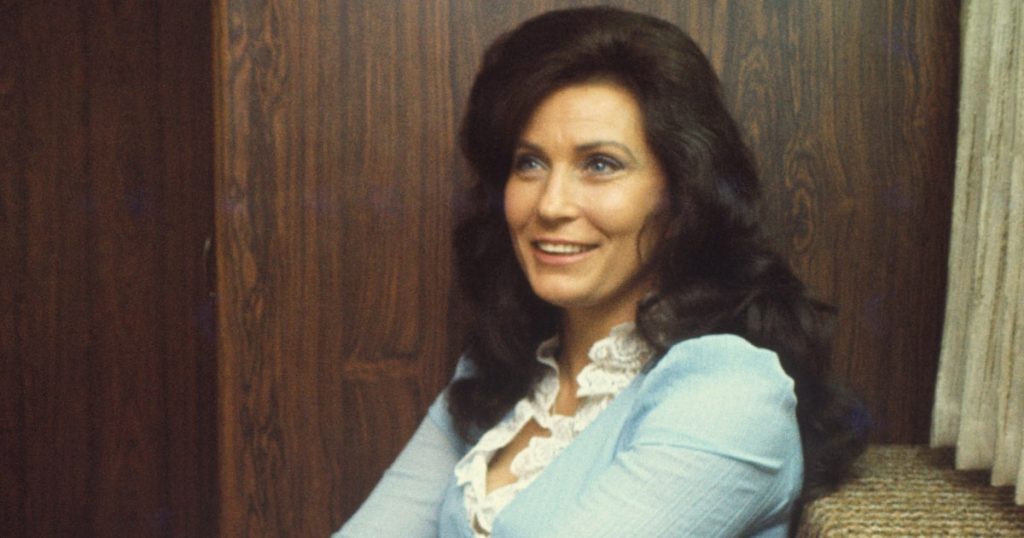
[DISCLAIMER: This episode of Cocaine & Rhinestones touches on a topic that will be upsetting for some listeners and readers. If abortion is a particularly sensitive subject for you, proceed with caution.]
Maybe you already know Loretta Lynn’s 1975 song about birth control, “The Pill,” was banned from radio upon release.
But do you know why?
The real answer is not what many would assume.
This episode of Cocaine & Rhinestones examines the history of contraceptive laws in America, before moving on to uncover the staggering inequality of morality applied to women in country music versus that applied to men in country music.
If your mind isn’t blown by the evidence laid out here, then it’s only because you’re jaded, because, on some level, you’ve always known this is true and grown resigned to it as fact. Even then, your capacity for amazement may surprise you.
Recommended if you like: Kitty Wells, Webb Pierce, Jimmie Rodgers, Dixie Chicks, Conway Twitty, KT Oslin, Garth Brooks, Sunday Sharpe, Lorene Mann, Jeannie C. Riley, Hank Thompson and feminism.
Also recommended if you don’t like: Barbra Streisand.
Contents (Click/Tap to Scroll)
- Primary Sources – books, documentaries, etc.
- Transcript of Episode – for the readers
- Liner Notes – list of featured music, online sources, further commentary
Primary Sources
In addition to The Library, these books were used for this episode:
Transcript of Episode
The Streisand Effect
The California Coastal Records Project is an attempt to acquire and maintain up-to-date photographs of the entire California coastline. They began doing this in 1997 before we had things like Google Earth. It’s a husband and wife team. She flies a helicopter and he takes the pictures.
The thing about the California coast is a whole lot of rich and famous people own houses on it – beachfront property. In 2002, one of those people was Barbra Streisand. In 2003, she sued the project. One of the pictures on their website had her house in it. The picture isn’t some paparazzi closeup on her backyard. They didn’t add an arrow pointing to her home with text saying BABS LIVES HERE! It’s a picture of a beach with some big houses in the background.
I know this because I’ve seen the picture. You can go see the picture, too, on the California Coastal Records project website. Barbra Streisand’s lawsuit was dismissed by the state of California. She had to pay over $150,000 to cover the project’s legal fees.
But here’s the real kicker: when the suit was filed, the offending photograph had only been downloaded six times and two of those were from Streisand’s own attorneys. The publicity from the lawsuit sent nearly half a million people to the website within one month. That picture has now surely been seen millions of times more than it would have been if Streisand hadn’t filed her lawsuit. Her effort to hide a thing from the world caused many more people to see that thing than if she’d ignored the thing.

The Streisand Effect Photo
She accomplished the opposite of her goal so successfully that today we call this phenomenon, The Streisand Effect, though you can find examples of it that predate the Streisand case.
Like Loretta Lynn’s 1975 hit song, “The Pill”…
Loretta is no stranger to controversy. Several of her singles had people riled up when they were released and “The Pill” wasn’t the first. But “The Pill” was released 15 years after birth control pills were introduced to the United States. So what was it specifically that radio programmers found unacceptable in this song?
Why was “The Pill” banned?
And how did banning “The Pill” help it become Loretta Lynn’s best-selling single at that point in her discography?
A Coal Miner’s Daughter
A lot of songs have full lives of their own. It would take too much time to really get into those songs in the middle of regular shows about the artists. So I’m giving songs like this an episode all to themselves.
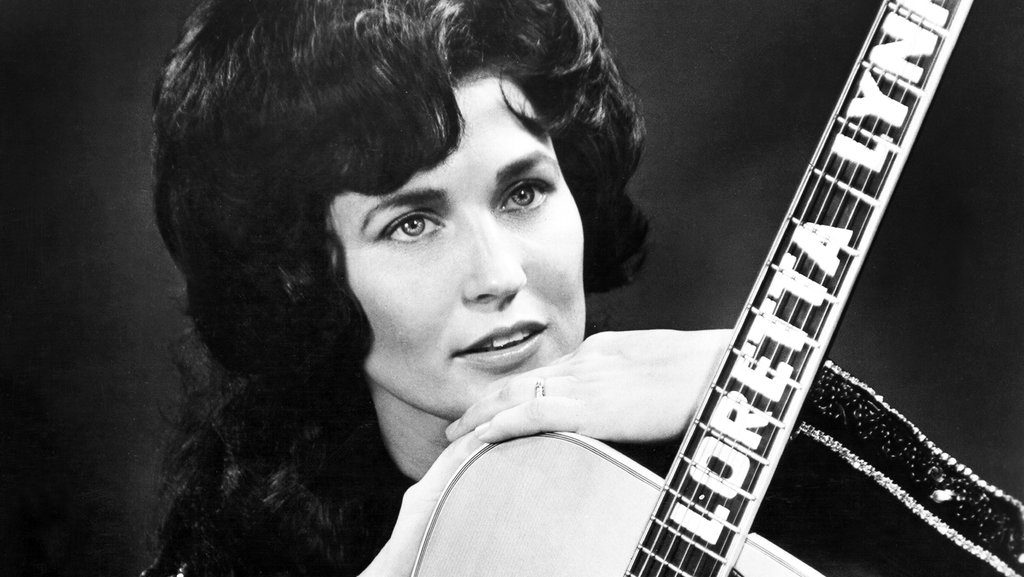
This is a song episode and that’s why we won’t spend very much time on Loretta Lynn’s personal history today. She wrote a great autobiography called Coal Miner’s Daughter that’s as close to the truth as anyone will ever get, even if she did use it to shave 3 years off her real age…
Most of you have seen the movie based on the book.
The cool thing about Loretta’s music is that you really don’t have to go read that book or see that movie to know her background. It’s all in the songs. The lyrics of “Coal Miner’s Daughter” tell you almost everything you need to know. She was born a coal miner’s daughter… in a cabin… on a hill… in Butcher Holler, Kentucky. Picture the kind of place that would be named “Butcher Holler.” It was precisely like that.
She married young, moved to the other side of the country and started having kids – lots of ‘em. Her husband heard her singing one day, thought she sounded pretty damn good, so he bought her a guitar and pushed her towards music. The rest is history that most of you already know.
So, let’s learn about birth control pills…
Supervising the Morality of The Public
To understand the atmosphere around birth control and sex in 1970s America, we have to look all the way back to the late 1800s when this entire country went to hell in a hand basket. Prostitution had hit a serious growth spurt during the Civil War. Photograph technology was the best thing to happen to pornography since paper. Then, there was the rising popularity of a Free Love movement, protesting the very concept of marriage itself. People were flaunting their sexuality with no shame or remorse. It really freaked out the squares, especially this US Postal Inspector named Anthony Comstock.
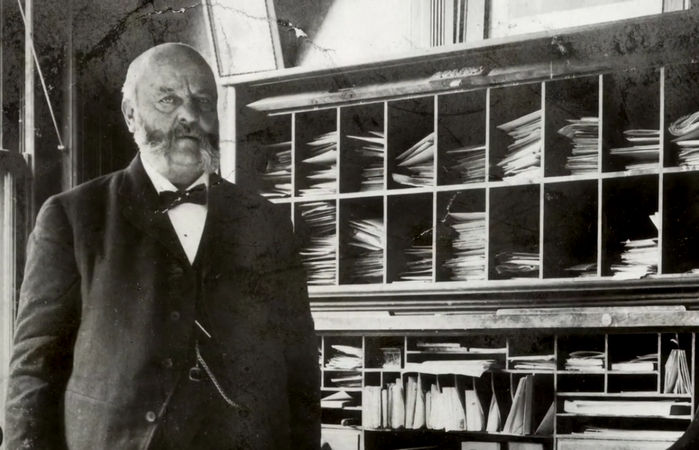
Comstock seems to me like the most uptight guy to ever live. His morals were so severe that he formed the New York Society for the Suppression of Vice in 1873, in order to “supervise the morality of The Public.”
That same year, he influenced Congress to pass the Comstock Laws – new legislation prohibiting the production, publication or use of the postal service for transportation of any obscene materials. Oh, and he was the one who got to define what was considered obscene since he personally enforced the laws.
Here’s a short list of things considered obscene by Anthony Comstock: any and every form of sex education whatsoever, tools or methods to prevent sexually transmitted diseases, tools or methods to terminate a pregnancy and tools or methods to prevent a pregnancy.
If that sounds fine to you, consider that, under Comstock’s standards, medical students were no longer allowed to have anatomy textbooks sent to them since they were viewed as pornographic. I don’t know about you but I want my doctors and surgeons to have a thorough understanding of human anatomy.
These laws applied to everyone. It didn’t matter if you were a single person or a happily married couple, trying to learn how to make a baby or keep from making one.
Pieces of the Comstock laws stayed on the books in America for over 100 years – into the 1990s – despite national surveys showing that, as early as 1937, over 70% of the population supported use of contraception and wanted to overturn these laws.
What happens when you have laws that 70% of your population disagrees with is that people break those laws. You can’t throw 70% of the country in jail. One woman who broke Comstock laws as often and as publicly as possible was Margaret Sanger, the founder of what we call Planned Parenthood today.
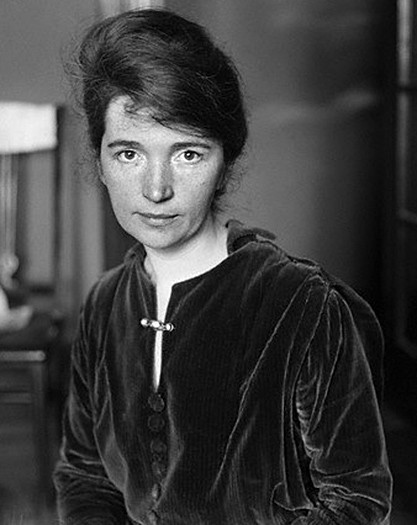
There was a certain satisfaction in doing something that was going to alleviate the sufferings – of women, in particular, and I was quite a feminist at the time […] and I naturally didn’t want to see women take all the suffering of childbearing and of pregnancies. So it was a pleasure, in a sense, to think that you were striking at an archaic law, which it was. [It was] put on the statute books by Anthony Comstock some years ago and no one had stood up against it. No one had tried to change the laws. And at that time not even a doctor had the right to use the United States mails and common carriers for books, for learning, for anything that he had to do with this question. It was considered obscene. –Margaret Sanger
She published pamphlets, opened the first birth control clinic in America and, eventually, convinced a wealthy philanthropist to fund the creation of the first birth control pill.
Contraception in America
Here’s a brief timeline of relevant events leading up to the release of Loretta Lynn’s 1975 song, “The Pill.”
In the 1950s, Comstock laws are still on the books in 30 states. In some of those states, married women are getting hysterectomies after delivering a baby so they can continue having sex without risking pregnancy. It’s the one legal form of contraception available to them.
1960: the 1st birth control pill is approved for contraceptive use by the FDA.
1962: there are over one million women on the pill.
1963: a pharmaceutical researcher named Bill Baird is conducting clinical research at Harlem Hospital when he witnesses the bloody death of a woman who tried to give herself an abortion with a coat hanger. This causes him to become a social advocate for reproductive rights.
1965: Griswold vs Connecticut – the Supreme Court rules that it is an unconstitutional violation of the right to privacy for our government to prohibit married couples from using birth control. It is still illegal for single women to have the pill in 26 states, due to Comstock laws.
1967: The Pill is on the cover of Time magazine. Bill Baird is arrested for handing out condoms and contraceptive foam at a speech in Boston. He faces ten years in jail.
1970: Congress removes references to contraception from federal anti-obscenity laws.
1972: Deep Throat is released, receiving more mainstream attention than any porno film ever. Bill Baird’s case for his arrest in Boston makes it all the way to the Supreme Court, where the legalization of birth control is extended to all American citizens, regardless of marital status. Loretta Lynn records “The Pill.”
1973: Roe vs Wade – the Supreme Court rules that a woman’s right to privacy includes the decision to have an abortion – with some caveats. Anyone who’s paid any attention to American politics in the last 50 years knows that we’ve been arguing about Roe v Wade since that day.
1975: Loretta Lynn’s record company finally releases “The Pill” after sitting on the recording for years. Everyone loses their mind.
Banning “The Pill”
Again, Loretta Lynn’s best songs are autobiographical, whether she wrote them or not. Nearly every online article I read for this episode mistakenly credits Loretta for writing the song. It’s an easy mistake. We all know she writes about the events of her life. We all know she married young and started making babies right away. Still, she did not write “The Pill.” It was written by Lorene Allen, Don McHan and T.D. Bayless.
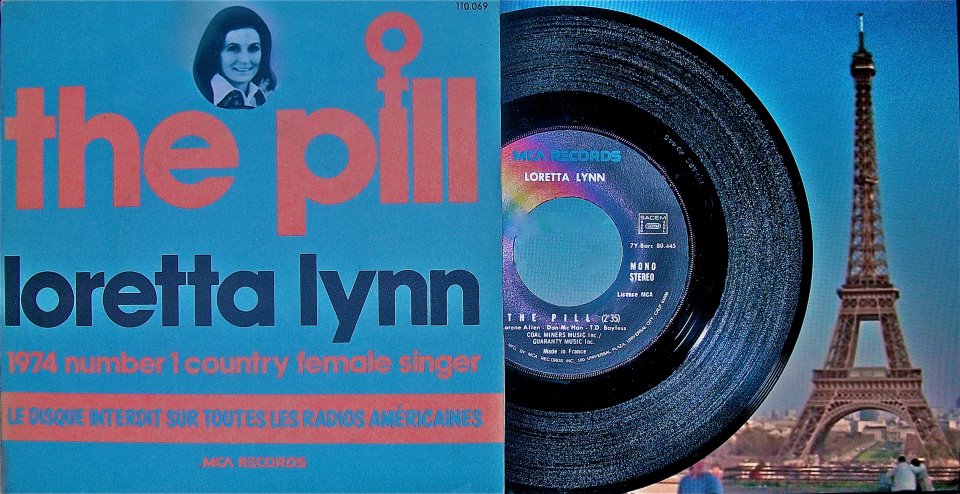
French Ad for The Pill by Loretta Lynn
And Loretta was never on the pill, either. She gave birth to six children before convincing her husband to have a vasectomy done. The year the song came out, she told People magazine that if the pill had been around when she was having babies, she’d have taken ‘em like popcorn.
“I wouldn’t trade my kids for anyone’s but I wouldn’t necessarily have had six and I sure would have spaced ’em better.” –Loretta Lynn
That article in People magazine opens with the scene of a preacher condemning Loretta’s single to his congregation in her home state of Kentucky. A different writer published this statement in the New York Times: “The new type of country song separates sex from joy, undercuts marital love and fidelity and debases women. It creates a vision of the world as a swamp of sin…” He goes on to praise the tradition of artists like Hank Williams, which is deeply contradictory if you know anything about Hank Williams. I don’t know about the other songs he was listening to but what “The Pill” really did achieve was the exact opposite of everything that writer said.
The song is not about a woman who gets a birth control prescription so she can joylessly cheat on her husband with every man in town now that she won’t get knocked up. It’s about a married woman telling her husband that she’s now free to truly enjoy their sex life because she’s in control of her body and no longer has to stifle fear or anxiety over adding another human being to their family. She knows he’s gone out and partied some when she wasn’t in the mood before but now she’s free to throw on a miniskirt and have a good time with her husband.
Yeah, it’s pretty sassy and there’s plenty of innuendo. She tells him he’s “set this chicken” for the last time and her “incubator is overused” from him keeping it filled…
…and those are the only lines in the song that could possibly be considered obscene, since merely referencing contraception hasn’t been obscene since that 1970 act of Congress. The only way those lines could be considered obscene is if being pregnant while married is obscene. That’s what those lines are describing. A set chicken. A full incubator. Metaphors for pregnancy. Banned by 60 radio stations in the United States. Sixty. More than one per state in the union.
All they accomplished by banning the song was to send record sales through the roof while artificially harming the single’s performance on the charts. Remember, we’re talking about an America where 70% of the population supports the use of contraceptives. Every time the song was publicly shamed, it’s statistically accurate to say that 7 of the 10 people present went out and found a way to listen to the song. Plenty of them liked what they heard enough to buy the album.
When stations were put in the position of having to play the song or lose listeners to other stations that would, the song finally rose to #5 on the country charts and #70 on the pop charts – Loretta’s best performance on the pop charts to this day.
So why had they banned it?
It was either a knee jerk reaction to a country song about birth control or it was something else. And I’m about to prove it wasn’t a knee jerk reaction to a country song about birth control.
In 1971, Chet Atkins produced a song by Lorene Mann with vocal accompaniment by The Jordanaires. The title of that song is “Hide My Sin” and then, spelled out letter-by-letter in parentheses, the words “Abortion New York.” That’s the title of the song. The Jordanaires sing out the letters to spell “Abortion New York” in the background, so there’s no missing it. The female narrator sings the sad story of an abortion she’s already had and regrets. The song came out in 1972 on RCA records, three years before “The Pill.” It was not banned.
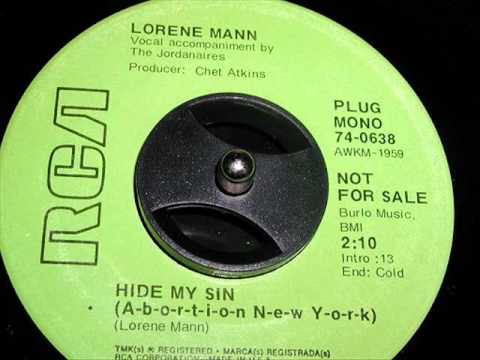
All the songs used for background music in this episode make reference to birth control. Every one of them came out before “The Pill” by Loretta Lynn. Not a single one was banned from radio play in the US. Here’s a little quick info on two of ‘em.
1972: Harry Chapin releases “Woman Child” with lyrics about a groupie having an abortion that he says he isn’t even certain is his. It’s pretty gross but it was not banned.
1974: Paul Anka’s “You’re Having My Baby,” widely regarded as one of the worst songs of all time, has lyrics that say he’s glad a woman wants to have his baby because he knows she she didn’t have to keep it. He would have been cool with the abortion and it would have been all over then but having the baby is totally awesome too. Not banned. A country singer named Sunday Sharpe covers this song as soon as it comes out. Her cover of the song with lyrics changed to the female perspective went to number 11 on the country music charts in October of 1974, less than a year before Loretta’s song came out. Not banned.
So, what the hell?
Double Standards in Country Music
The standards applied to male artists and female artists in country music are different and they always have been. Men have to go way over the line. All women have to do is get near it.
Let me remind you that this show is about country music in the 1900s and let me be clear that I’m speaking only of major label singles intended for airplay that were banned by radio stations. I’m not talking about clean radio edits or songs that had curse words bleeped out for airplay.
In the 1900s, female country artists had exponentially more songs banned from radio than men did. In fact, I know of just five singles by male artists banned from country radio before the year 2000, which is fewer than Loretta Lynn had banned from radio by herself.
In 1931, Jimmie Rodgers had the song “What’s It?” banned because the “what’s it” in the title lives in his girlfriend’s underwear. Webb Pierce had “There Stands the Glass” banned in 1953 for being such a blatant ode to alcoholism. Conway Twitty’s “You’ve Never Been This Far Before” would probably still make some parents shut off the stereo. So it’s not that surprising that it was banned by a few stations, though merely a few. It was on the country charts for 16 weeks and stayed at #1 for three weeks. Tim McGraw had his song “Indian Outlaw” banned from radio. It’s essentially lyrical redface.
The only other pre-Y2K country song by a man that I know was banned from some radio stations was Merle Haggard’s “Okie from Muskogee” – and that one’s complicated enough to deserve its own episode down the road…
“The Pill” wasn’t banned from country radio because it was a song about birth control. It was banned because the woman in the song proudly and happily sings about the freedom birth control gives her to live her life on her terms, regardless of what men think about it.
If she was ashamed to be on birth control or embarrassed to be on birth control then the song would not have been banned. If “The Pill” had been recorded by a male artist and the gender PoV changed to “She’s Got the Pill,” a celebration of how much the pill has improved the marriage and the sex for him, it would not have been banned.
Female artists have their songs banned simply for standing up to society or for fighting back. “Harper Valley PTA” is a perfect example. There isn’t anything scandalous about that song. It’s about a single mother telling some people off for not minding their own business and for being hypocrites. It was banned from several radio stations.
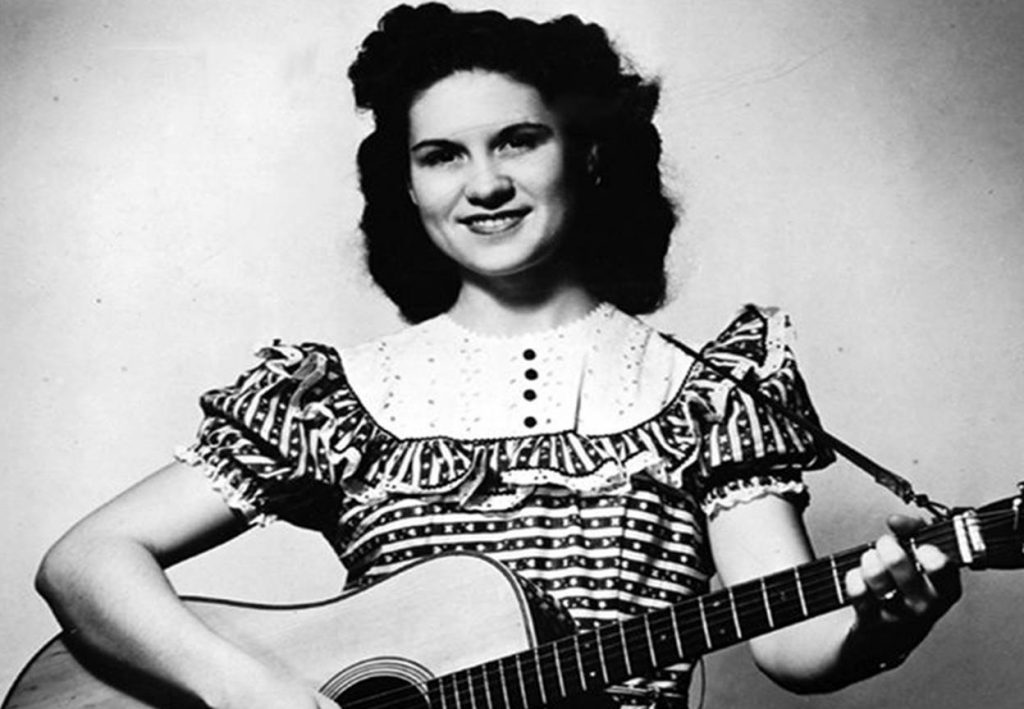
Kitty Wells
Kitty Wells’ “It Wasn’t God Who Made Honky Tonk Angels” is a song about how she’s tired of married men acting like they’re single and women getting blamed for it. It was a direct response to Hank Thompson’s hit “The Wild Side of Life.” – a song about cheating women which spent 15 weeks at #1 and caused zero controversy the whole time. Kitty’s song was banned from radio.
Johnny Cash can sing about shooting a man just to watch him die in 1955. When Dixie Chicks release “Goodbye Earl” in 1999? We can’t have a song about a woman who’s tried every way of escaping an abusive husband except finally killing him. Banned from radio. Their label almost wouldn’t let them release it as a single, only allowing it after the girls played the song at the Grammy awards without the world ending.
I can even show you an instance of a male artist being banned for depicting a woman fighting back. “The Thunder Rolls” by Garth Brooks has a third verse that his producer talked him out of recording. In that third verse, the wife of the cheating husband in the song gets a gun out of a drawer and tells herself this is the last time. Garth saved those lines for live performances of the song. When it came time to make the music video, he decided to include that image from the third verse. The wife gets the gun and she uses it.
You know what happened next, right?
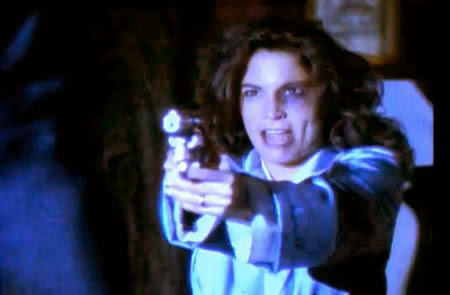
The Thunder Rolls music video
The day after it was released, TNN banned the video and then CMT banned the video.
I should mention that TNN said they’d put the video back in rotation if Garth filmed a disclaimer to run with it. TNN had a script made for the disclaimer they wanted and sent it over to Garth, who read it. I don’t know what that disclaimer said but Garth refused. One of his managers said Garth refused because the disclaimer would have made it seem like Garth was apologizing for making the video.
It’s a good thing Loretta Lynn had the foresight to release nearly nothing but Top 10 singles for a decade before “The Pill” came out or we may never have heard it.
Here’s what happened to KT Oslin…
Her first single went to #72 on the country charts in 1981. She followed it up just months later with a song called “Younger Men.” It was about how men her age, around 40 years old, were either uninterested or unable to run at her speed, so to speak. This was way before that other pill, Viagra, so she’s decided to try out a younger guy – possibly a 19 year old.
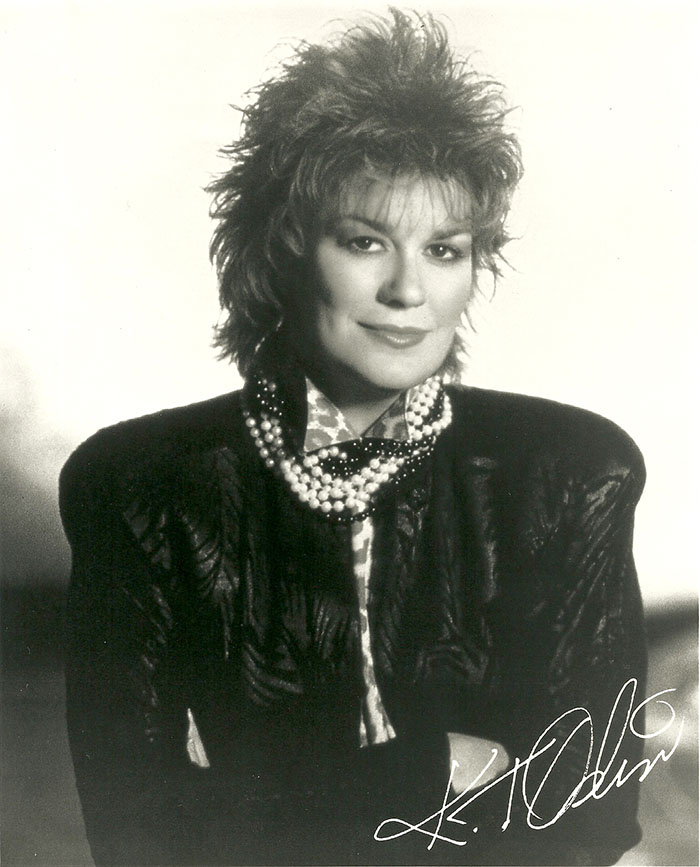
Now, I’ve never met a 19 year old guy in charge of deciding what songs aren’t allowed to be played on a radio station. I’ve met plenty of 40 year old guys who are. “Younger Men” didn’t hit the country charts. It wasn’t banned. Radio stations simply chose not to play it.
KT’s next single came out five years later and went to #40. Her following three singles made it in the Top 10 because they didn’t hurt the feelings of radio programmers.
In 1987, she re-recorded “Younger Men” and put it out as a single again in 1988. No airplay, again. No charts, again. Her following single broke the Top 20 and the three after that all hit Top 5.
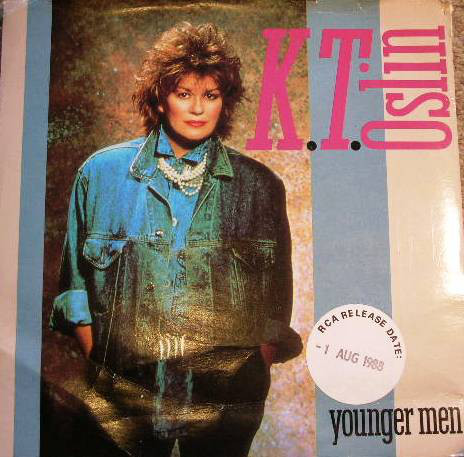
Younger Men 1988 single
I could do this all day but I think I’ve proven my point.
Walking the Line – Or Not
If you were a woman making country music in the 20th century then you’d better have some serious momentum built up before taking the car off road or you were liable to get stuck.
Loretta Lynn may tell you she’s had as many as fourteen songs banned from radio stations. As far as I can tell, the real number is closer to nine. Some of the women mentioned in this episode were victims of an unfair system. Loretta Lynn was not one of them. Her “aw shucks” hillbilly personality is authentic but there’s a deeply perceptive person behind it.
She knew exactly what she was doing.
Maybe not the first time it happened but certainly the next time and the one after that and so on. Revisit the timeline from earlier. Loretta recorded “The Pill” in 1972, the year the Supreme Court made the birth control pill legal for all American citizens. The record company held her back for three years but Loretta was trying to push the envelope even earlier than she did.
The lyrics Loretta wrote for “Don’t Come Home Drinkin with Lovin on Your Mind” ruffled some feathers. For the first time in her career, a song she’d written herself was being treated as scandalous. And for the first time in her career she had a #1 hit single.
She’d already started recording her next album four months before “Don’t Come Home Drinkin” was a hit. So skip that one and the next Loretta Lynn album you have with singles released from it is a record called Fist City. The title track was banned and it was her second #1 single.
It’s an easy pattern to spot and it’s held up over her entire career. Once she became a big enough star that the public response and the industry response to her new albums were newsworthy, Loretta Lynn was able to consistently exploit The Streisand Effect to her benefit before we even had a name for it.
Years later, Loretta would joke that she could always tell how well her songs were doing by looking at how many radio stations had banned them.
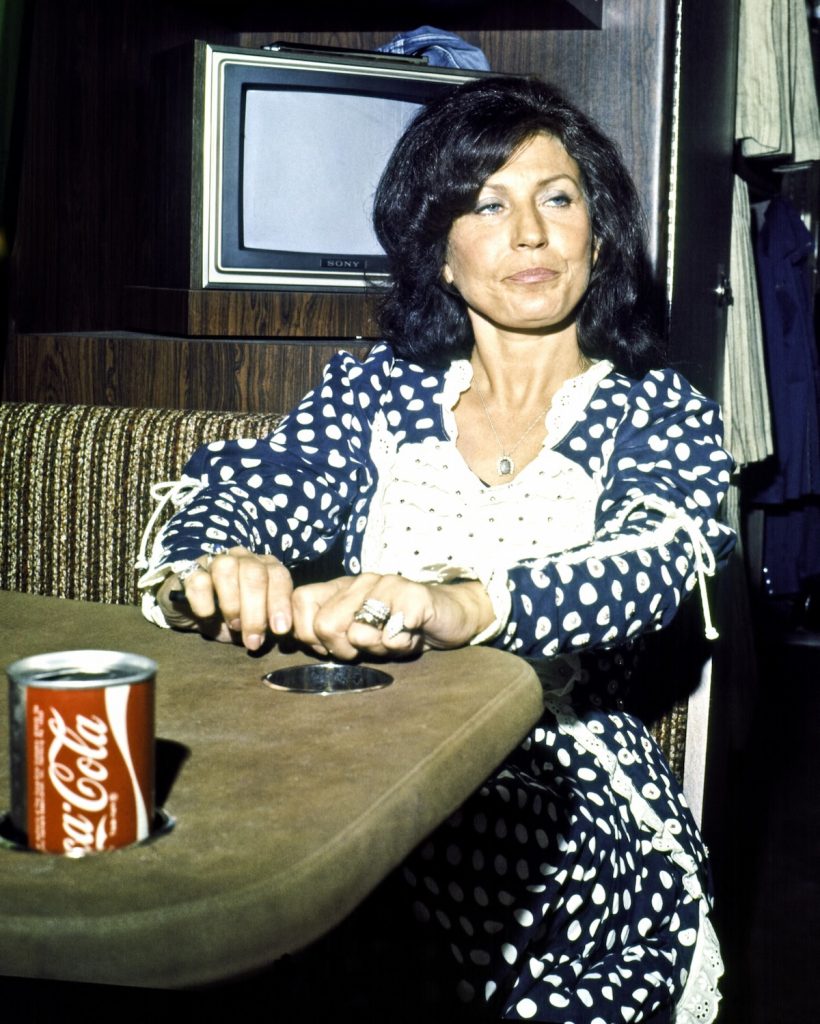
Thank you for listening to and reading Cocaine & Rhinestones. Every episode of the podcast is written and produced by me, Tyler Mahan Coe. You can find me on Facebook and Twitter under my full name, if you want.
I know we’re just getting started and you may not know what you really think about this show yet but try to stick with me because I’m teaching myself how to do all of this as I go. If you are enjoying it at all then I’ll ask again that you share it with one person. Even better if you talk about it with them in real life. Talk about these stories and this music. If you’re here before November 9th, then I shouldn’t be in iTunes or Stitcher yet but you can subscribe to new episodes by email or subscribe on an Android phone. If you are listening on iTunes or Stitcher then please leave me a good review. I’m told it helps a lot and I need all the help I can get. Thank you.
Next week, I’m telling a story that, well… it may have legitimately traumatized me. Only time will tell. It could be the darkest stain on the history of country music. Of course, I’m talking about Spade Cooley’s dominance of the California country music scene and the horrific way it ended with the brutal torture and murder of his wife. I’ve seen many people get this story wrong over the years and I didn’t know how wrong until I looked into it for myself. It’s tough… There’s just no way around it. It’s very difficult to listen to… So, yeah, make sure you catch that one so you can have nightmares for three weeks like I did! I don’t listen to the “murder podcasts” but I guess if you like those then maybe you will like this upcoming episode. I find it pretty rough going.
-TMC
Liner Notes
Excerpted Music
This episode featured excerpts from the following songs, in this order:
- Harry Chapin – “Woman Child” [Amazon / Apple Music]
- Loretta Lynn – “The Pill” [Amazon / Apple Music]
- Loretta Lynn – “Coal Miner’s Daughter” [Amazon / Apple Music]
- Soeur Sourire – “La pilule d’or” [Amazon / Apple Music]
- Paul Anka – “(You’re) Having My Baby” [Amazon / Apple Music]
- Lloyd Terrell [Lloyd Charmers] – “Birth Control” [Amazon / Apple Music]
- Lorene Mann ft. The Jordanaires – “Hide My Sin (A-b-o-r-t-i-o-n N-e-w Y-o-r-k)” [Amazon / Apple Music]
- Sunday Sharpe – “I’m Having Your Baby” [Amazon / Apple Music]
- Jimmie Rodgers – “What’s It?” [Amazon / Apple Music]
- Webb Pierce – “There Stands the Glass” [Amazon / Apple Music]
- Conway Twitty – “You’ve Never Been This Far Before” [Amazon / Apple Music]
- Tim McGraw – “Indian Outlaw” [Amazon / Apple Music]
- Matt McGinn – “The Pill” [Amazon / Apple Music]
- Jeannie C. Riley – “Harper Valley PTA” [Amazon / Apple Music]
- Kitty Wells – “It Wasn’t God Who Made Honky Tonk Angels” [Amazon / Apple Music]
- Hank Thompson – “The Wild Side of Life” [Amazon / Apple Music]
- Garth Brooks – “The Thunder Rolls” [Amazon / Apple Music]
- KT Oslin – “Younger Men” [Amazon / Apple Music]
- Loretta Lynn – “Don’t Come Home a-Drinkin’ (With Lovin’ on Your Mind)” [Amazon / Apple Music]
- Loretta Lynn – “Fist City” [Amazon / Apple Music]
Excerpted Video
The following videos were either discussed or excerpted in this episode. It’s possible that they may have been removed for any of a number of reasons since this post was written:
Commentary and Remaining Sources
Here is the California Coastal Records Projects webpage on the Streisand case. Two links with more of the details I mentioned (one – two). Then here’s an article from TechDirt about that case turning into “The Streisand Effect.”
You can go read the full 1975 People magazine article on Loretta Lynn if you want to see just how hysterical people got over this song and how much it drove up her sales.
Regardless of what you think about Dixie Chicks’ political beliefs or their outspokenness about them, there is no sane argument for why “Goodbye Earl” should have been banned from radio, especially in light of the perpetual presence of any and all types of revenge killing in country music. I don’t even need the song to be “tongue-in-cheek” as suggested by the guy quoted in this article on Dixie Chicks being banned. The guy beat his wife so he got dealt with. The end. That’s country music.
I’m honestly pretty nervous about putting this episode out into the world but this entire podcast would be bullshit if I didn’t, so I kind of feel like I have to do it. It is fascinating but in a way that’s like a car wreck. You’re gonna look. You have to look. You can’t not look.
Only, this car wreck… It’s like if you were driving and the entire road trip from Nashville to Los Angeles there was just one long car crash on the side of the interstate the entire time.
I expect country music fans are already aware of the problems women artists face in a general way, although maybe not aware of how extreme a problem it really is. I guess what I’m worried about here is that I very much intend this show to be appealing to people who are not already fans of the genre. I think these stories and this history will be fascinating to people who may even currently believe that they hate country music.
So, in today’s political climate, where everything has to be political, whether it’s meant that way or not – even just sitting down and listing some facts, which I feel is pretty much all I’ve done here – I could see some outsiders with an agenda having a knee-jerk reaction, saying I’m blowing things out of proportion or even making shit up. I wish I was. It brings me no pleasure to document this massive shortcoming of a type of music that I love.
I mean, listen, I’m not trying to position myself as the be-all, end-all authority on country music history. Please, go look up anything you believe I may have gotten wrong. If I did get something wrong, feel free to let me know. If you have a good source for your information, it’s not just some story your grandpa told you, I’ll even update the episode with correct information. That goes for every episode.
My aim here is to tell the truth. I love country music. I want to talk about it. I want the conversation to stay honest. Sometimes that’s going to be uncomfortable for me and for you. So… deal with it, you know?
I misspoke in the episode regarding the KT Oslin single. She re-recorded “Younger Men” in 1987 and it was re-released as a single in 1988. I said in the episode that she re-recorded it in 1988. It was not worth going back and rerecording a bunch of stuff, so I’m telling you here. Everything else I said about it was accurate but I also forgot to mention that the album it came out on the second time around won a Grammy award. That’s even more damning, I feel.
Seriously, go look at KT Oslin’s discography page on Wikipedia, scroll down to the section on her singles and there’s just a hole right there in the middle of all these hits. It’s arguably the height of her career and there’s one song there that didn’t get any airplay for some strange reason. Hmmm…. I wonder how many of the radio programmers who kept her song off playlists couldn’t get it up anymore?
Anyway…
By the way, I was not talking shit on Hank Williams Sr.
I love Hank and his music. His biography is so fascinating to me that I’m intimidated by the thought of discussing him on this show. I’m just saying it’s super out of touch for anyone to hold up Hank as the pinnacle of morality, as that writer seemed to be doing for some weird reason…
I obviously recommend that everyone read Coal Miner’s Daughter if you want to know more about Loretta Lynn. A lot of country singer autobiographies are full of shit but hers seems mostly legit. I should warn you that Loretta’s wedding night is a straight up rape scene. It’s still messed up in the book, even though it’s sort of glossed over, but seeing it in the movie is unsettling, to say the least. I would say it didn’t age well but it’s just history. History has not aged well…
The Margaret Sanger clip was taken from the interview with Mike Wallace posted above, which I’m aware is a controversial interview for a lot of people for many different reasons. You can get yourself into quite an argument in the YouTube comments if you want. I don’t feel a need to give an opinion on it. I don’t really know what happened. I wasn’t there.
Nothing in this episode was about shoving political ideas at anyone. It would have been ridiculous to try and talk about why Loretta’s song “The Pill” could have been banned without talking about the history of birth control in America. Margaret Sanger was a part of that history. I had a clip of her saying exactly what I was saying about her in her own words with her own voice. I used it.
I read several things to build the timeline of birth control in America. The one that I would recommend as an actual good read is America and The Pill by Elaine Tyler May. If I said anything remotely fresh or insightful on the subject, which I probably did not, I’m sure it was inspired by her book. If you thought any of that was interesting you should read her book.
Alright, here’s the area where it’s most likely that you think I said something completely wrong: talking about men being banned from country radio. Listen, like I said, if you find a reputable source to add something to the list, feel free to get in touch. Make sure you check your date – it’s gotta be before the year 2000. I don’t want to hear about your local radio station banning a song. Anyone can start a radio station in the middle of nowhere and ban whatever they want. I need legit stations. There’s gotta be more than one of them. I’m not saying I missed any songs and I don’t think that I did. I don’t think it’s at all possible that I did miss enough songs to balance the scales, here. I didn’t even come close to mentioning all the songs banned by women in country music. This episode would have been 2 hours long.
I’ll also point out that I was very lenient with my sources, regarding those five songs by men being banned. It’s hard to research this topic now because, after 9/11, Clear Channel banned a bunch of random songs and that’s mostly what comes up in when you try to search for banned music now. To give you an idea, there was some random little book called The Rough Guide to Cult Pop. It had one sentence about Webb Pierce being banned so I put that in this episode. Then I found the same thing about Webb in a better book, called Taboo Tunes, which was a more thorough look at the topic. That’s where I got Jimmie Rodgers from. There weren’t any other male country acts in that whole book dedicated to this very subject. So, yeah, come at me…
I would love to get a look at the disclaimer TNN asked Garth Brooks to film for that music video.
What horseshit.
Anyway, Patsi Bale Cox wrote a biography of Garth called The Garth Factor. Patsi is a great writer. She’s done several biographies that I’ll be using for future episodes. She always goes deep and if there’s a situation where there’s more than one side of a story, it looks like she tries to include all the different sides. See if she’s written a book on someone you like – I’m sure it’s good.
Her book actually has some information on this. Apparently Garth went to TNN to read the script that they wrote for him. It’s one of those things like, “Hi, I’m Garth Brooks. What you’ve just seen, though very sad, is very real. Unfortunately, domestic violence is very much alive in our society.” The script goes on to tell men, women and children, if they’re involved in domestic violence situations to seek help. Apparently, Garth felt like it was wrong. It felt like he was getting exposure by exploiting a controversy, which was not his intention. I mean, come on, this is garbage. Making an artist turn what they wanted to make into something else…
I mean, this is the dude who did Chris Gaines, by the way.
Can we remember that?
Maybe you don’t understand what he’s doing but this guy clearly put some thought into what he wanted to do. He’s trying to say what he wants to say. If he wants to make a commercial, he’ll make a commercial. This is not the kind of guy you’re gonna get to read your disclaimer and let you off the hook for showing his music video. It’s just ridiculous.
This is not in Patsi’s book but one time Garth Brooks and Loretta Lynn were both at a White House dinner. Loretta asked the waitstaff what this fancy looking little piece of flat bread was supposed to be and they told her it was a biscuit. So Loretta sent instructions back to the kitchen on how to make a good biscuit, like a proper biscuit. Garth Brooks tells that story.
Alright, that’s it. You have no idea how much it means to me that you even wanted to read or listen to this. I’m really surprised by how many people are interested in a country music podcast but I’m glad that it does seem to be working so far.
Thank you. I’ll be back in a week.
-TMC
[Send questions concerning this episode or anything else to questions@cocaineandrhinestones.com and your question may be answered in a Q & A episode at the end of the first season.] BONUS: Cocaine & Rhinestones Season 1 Q&A Episode!
